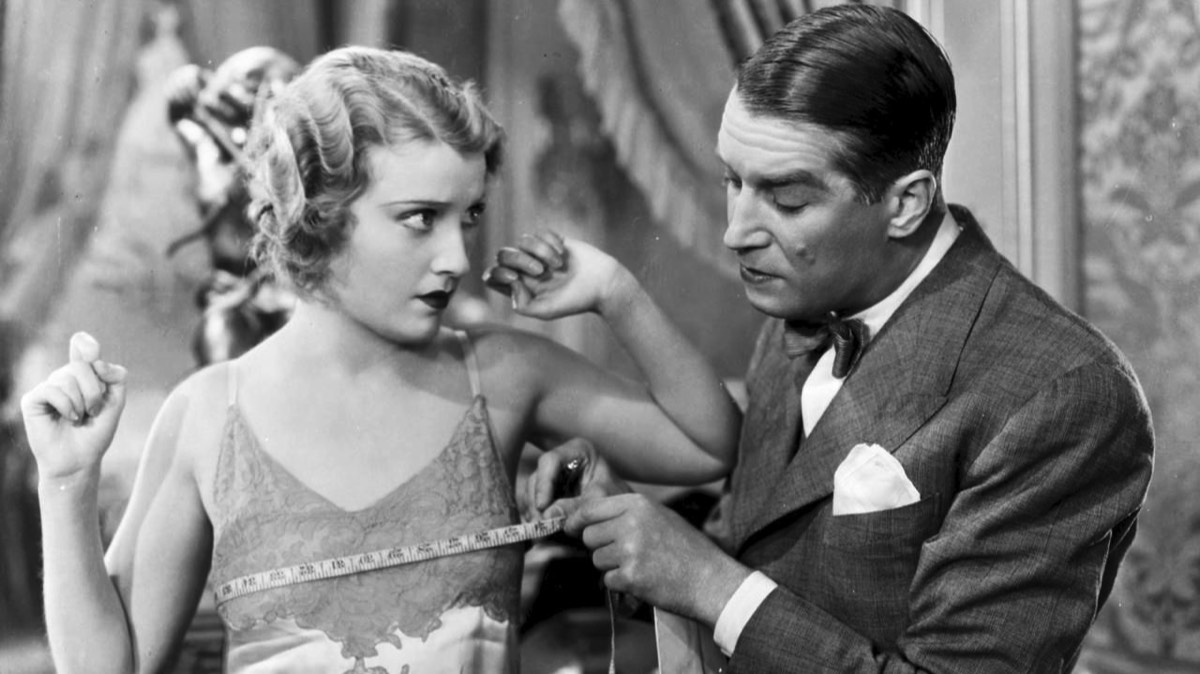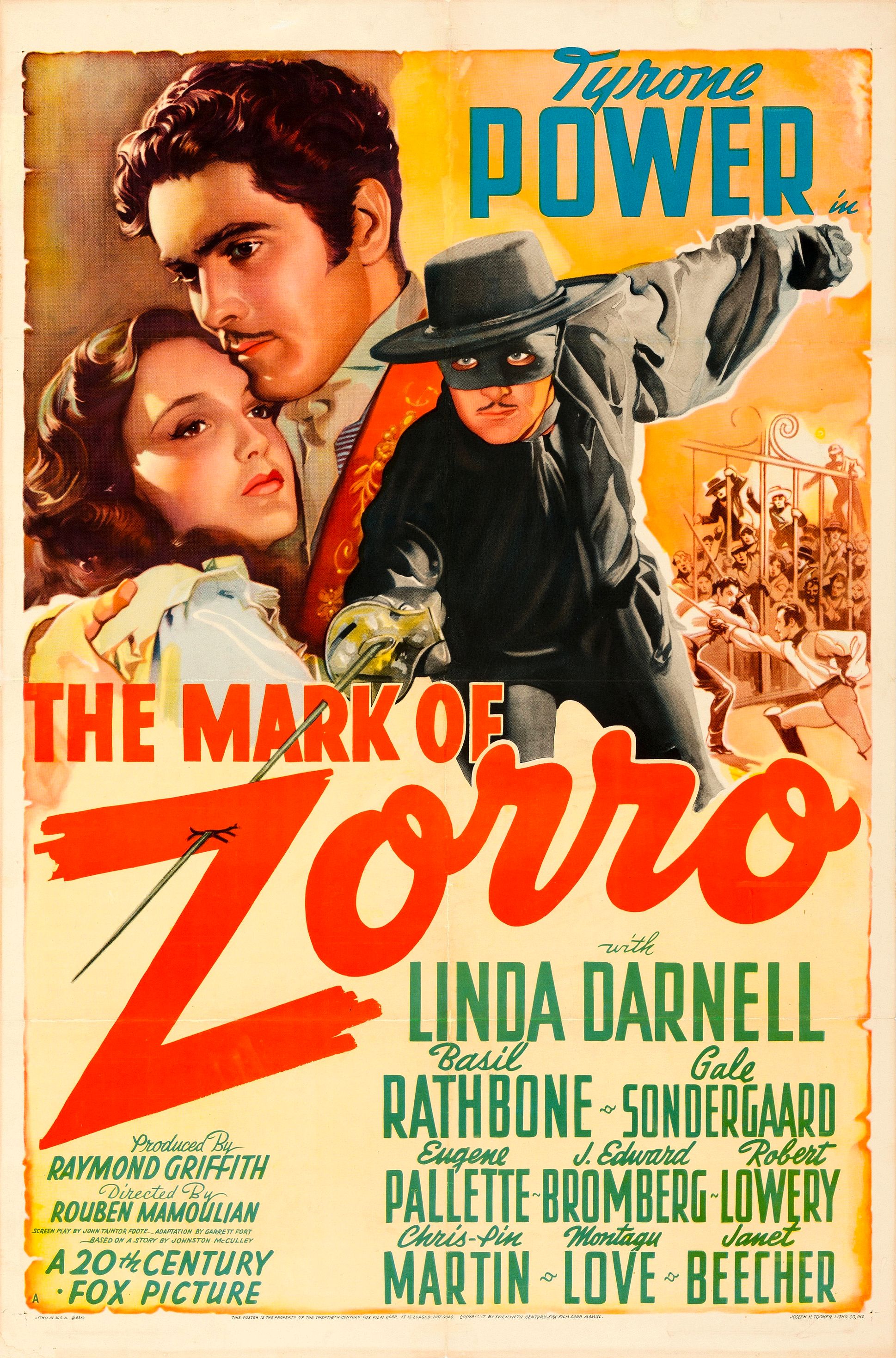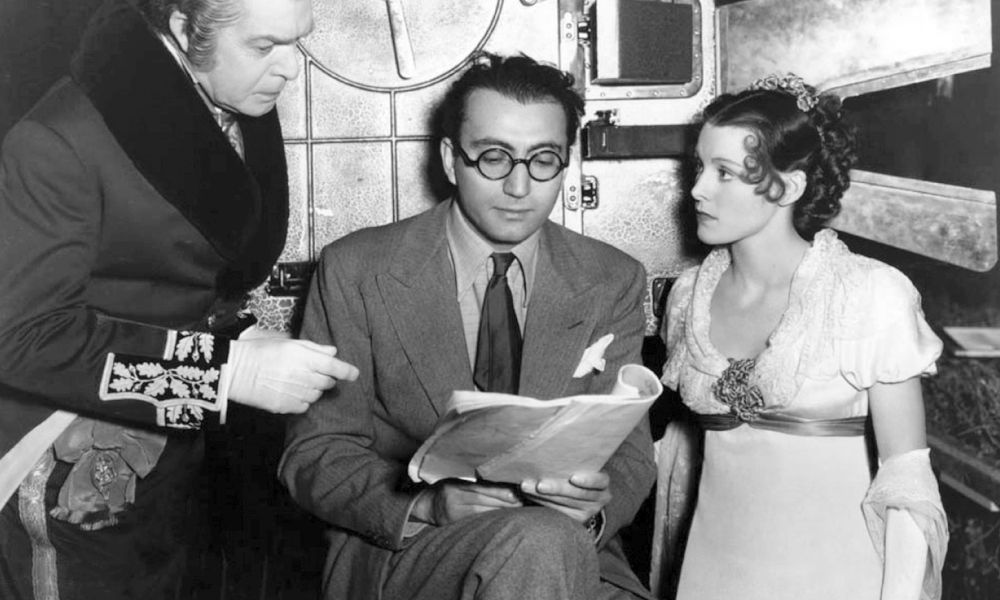"The status of Rouben Mamoulian as one of the screen's great innovators - as a director who used sound, color, and the camera in new and exciting ways - remains undimmed… Mamoulian had a lifelong interest in movement and rhythm in film, and, at his best, as in the enchanting Love Me Tonight, he made the screen shimmer and glow with a matchless kinetic energy." - Ted Sennett (Great Movie Directors, 1986)
Rouben Mamoulian
Director / Producer
(1897-1987) Born October 8, Tiflis, Russian Empire (now Tbilisi, Georgia)
(1897-1987) Born October 8, Tiflis, Russian Empire (now Tbilisi, Georgia)
Key Production Country: USA
Key Genres: Drama, Romance, Musical, Comedy, Musical Romance, Romantic Drama, Melodrama, Period Film
Key Collaborators: Alfred Newman (Composer), Richard Day (Production Designer), Samuel Hoffenstein (Screenwriter), Victor Milner (Cinematographer), William Shea (Editor), C. Aubrey Smith (Leading Character Actor), Hans Dreier (Production Designer), Tyrone Power (Leading Actor), Fredric March (Leading Actor), Miriam Hopkins (Leading Actress), Linda Darnell (Leading Actress), Garrett Fort (Screenwriter)
Key Genres: Drama, Romance, Musical, Comedy, Musical Romance, Romantic Drama, Melodrama, Period Film
Key Collaborators: Alfred Newman (Composer), Richard Day (Production Designer), Samuel Hoffenstein (Screenwriter), Victor Milner (Cinematographer), William Shea (Editor), C. Aubrey Smith (Leading Character Actor), Hans Dreier (Production Designer), Tyrone Power (Leading Actor), Fredric March (Leading Actor), Miriam Hopkins (Leading Actress), Linda Darnell (Leading Actress), Garrett Fort (Screenwriter)
"Rouben Mamoulian is certainly one of the finest directors in American film history. While not considered strictly an auteur with a unifying theme running through his films, the importance of each of his movies on an individual basis is significant. Mamoulian did not have a large output, having completed only sixteen assignments in his twenty-year career in motion pictures, principally because he was also very active in the theater." - Patricia King Hanson (International Dictionary of Films and Filmmakers, 2000)
"For his courageous and pathbreaking embrace of new techniques and technologies, Mamoulian has been amply recognized, although most famously by Andrew Sarris who acidly named Mamoulian as “an innovator who ran out of innovations.” And yet an immediate challenge to any quick dismissal can be found by simply looking closer at Mamoulian’s key works—from the pioneering early sound films Applause and Dr. Jekyll and Mr. Hyde, to his Surrealist-inflected crime drama City Streets, or his inventive and wonderfully unclassifiable musicals The Gay Desperado and High, Wide and Handsome, or even Silk Stockings, his rarely considered yet politically cutting Cold War remake of Ninotchka. Easily equal to great studio directors such as King Vidor, Tay Garnett or early Mervyn LeRoy, Mamoulian at times reached that ineffable level of his greatest fellow émigré artists—Murnau, Lang, Hitchcock." - Haden Guest (Harvard Film Archive, 2016)

Love Me Tonight (1932)
"Equally successful as a director of stage and screen, Mamoulian has been active in Hollywood since 1929 when he made an inventive early talkie, the strong melodrama Applause. During his long career he experimented with every type of film, from crime drama to romantic costumers and rugged action pictures." - The Movie Makers, 1974
"Mamoulian’s legacy is still substantial and should not be relegated to predominantly technical considerations. He was the main catalyst in at least five outstanding Hollywood films, and his initial run of six features is as strong, and important, as any other director of the era. Despite his protestations to the contrary, Mamoulian was at his best when working within the system, exploiting the extraordinary conflation of artists, actors, writers, technicians and craftspeople that made the Classical Hollywood cinema possible. For a few short years, Mamoulian was one of a small number of directors who used Hollywood as a true studio environment." - Adrian Danks (Senses of Cinema, 2007)
"Invited to Hollywood at the beginning of sound, he immediately refused to be shackled by theatrical conventions, throwing himself into the new medium like a born cineaste. Whether musical or dramas, his films have the rhythmic fluency of dance, full of visual and aural effects, sensuous lighting and decor." - Ronald Bergan (A-Z of Movie Directors, 1983)
"A noted director of several famous Broadway productions, Rouben Mamoulian translated his sense for the theatrical to film and quickly became known for his innovative use of the camera, sound and color even in an age when black-and-white film was the standard. Guided by a strong creative instinct, informed intelligence, and a staunch independence that often clashed with the staid Hollywood studio system, Mamoulian emphasized stylization over naturalism in such early works as City Streets (1931) and Dr. Jekyll and Mr. Hyde (1931)." - Shawn Dwyer (Turner Classic Movies)
"Rouben Mamoulian cannot be ignored. He gave us a way of dealing with music on film, various moments of joy and despair, infectiously flowing movements and lots of experiments with the cinematic medium. Too often, his experiments lead into dead ends or mistaken notions of what a film could, or should, be. At his worst, Mamoulian is like a singer with a big voice just showing off and not paying much attention to lyrics… Mamoulian cannot be placed with the greatest directors, nor can he be relegated to the also-rans or the hacks. He occupies his own frustrating, small kingdom in film history, and there’s no question that his reputation will continue to fluctuate as more people grapple with his movies and with the enigma of the man himself." - Dan Callahan (Slant Magazine, 2007)
"My belief is that the camera should not be treated as a witness of things happening, but that it should be the main actor in a picture." - Rouben Mamoulian
Selected Filmography
{{row.titlelong}}
GF Greatest Films ranking (★ Top 1000 ● Top 2500)
T TSPDT N 1,000 Noir Films
R Jonathan Rosenbaum S Martin Scorsese
T TSPDT N 1,000 Noir Films
R Jonathan Rosenbaum S Martin Scorsese
Rouben Mamoulian / Fan Club
Jonathan Rosenbaum, David Meeker, José Luis Guarner, David Parkinson, Laura Mulvey, Pam Cook, Catherine A. Surowiec, Jacob Perlin, Peter Todd, Lars-Olav Beier, Yael Shuv, Leslie Halliwell.
Jonathan Rosenbaum, David Meeker, José Luis Guarner, David Parkinson, Laura Mulvey, Pam Cook, Catherine A. Surowiec, Jacob Perlin, Peter Todd, Lars-Olav Beier, Yael Shuv, Leslie Halliwell.
"Fan Club"
These film critics/filmmakers have, on multiple occasions, selected this director’s work within film ballots/lists that they have submitted.
These film critics/filmmakers have, on multiple occasions, selected this director’s work within film ballots/lists that they have submitted.


